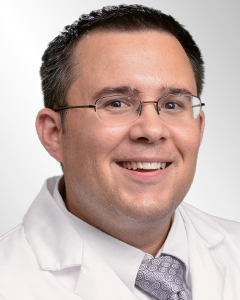More than a quarter of doctors admit to prescribing medication that likely won’t have many therapeutic benefits for patients, according to a recent survey of more than 5,000 American College of Physicians (ACP) member physicians.
In the survey, which asked doctors to identify two treatments often used by internal medicine physicians that weren’t likely to provide high value care to patients, 27 percent of doctors said they prescribed antibiotics to patients even when it was likely the treatment wouldn’t be effective. Nine percent said they used aggressive treatments on terminally-ill patients even when these treatments weren’t valuable, seven percent prescribed medications for chronic pain, while five percent recommended dietary supplements to patients.
The survey highlights that over-prescribing is still an issue among physicians and that it’s a problem that leads to a lot of waste, inefficiencies and added costs within our country’s health care system.
So, why does this keep happening?
The pressure to fulfill patients’ expectations may be the root cause of the problem. Patients come to doctors for answers, and often many of these patients have spent time Googling their ailment and have come up with a solution before they even step foot into a doctor’s office.
Most patients know about antibiotics, so it’s often top of mind when they seek medical therapy for conditions like a bacterial infection or even viral infections for which this treatment is wholly ineffective.
"If a patient shows up in a physician's practice and they have an upper respiratory tract infection, it is most often viral and will resolve itself in a few days," Dr. Amir Qaseem, vice president of clinical policy for ACP and chair of the association’s High Value Care Task Force, said during a recent interview. "You tell the patient to go home, rest, and it will be OK, but generally the expectation of a patient is that you will do something more than that."
Doctors also may be over-prescribing because they fear a lawsuit, are trying to be proactive by practicing defensive medical decision making or because they are trying to adhere to clinical performance measures that require a one-size-fits-all treatment approach for patients.
But despite doctors’ best intentions, this isn’t the best way to practice medicine. This is especially true when you consider that there are new drug-resistant strains of bacteria that make antibiotics — the most commonly over-prescribed treatment — less effective (the emerging drug-resistant super gonorrhea is just one example of this). Speak with your doctor about whether you need a medication or if you need a medication that is as strong as the one he or she may be prescribing you. Remember, you always can say no to a prescription.
In addition to over-prescribing, accidently over-medicating also is a risk for patients. Discard medicines safely. It's extremely dangerous if parents don't get rid of medicine after they're done with a prescription, as children often can't tell the difference from drugs and candy. So make sure you get rid of medicines you don't need.
It’s important for every patient to be proactive and educated about what you put into your body. As doctors, we’ve sworn an oath to do no harm, but sometimes this focus leads to prescribing medication that may not be as high value to the patient, especially when other treatment approaches like rest or fluids can help you get better. What this survey shows is that most doctors want to do right by patients, but that it’s important for physicians and patients to have an open dialogue and evidence-based discussion about what will work and what won’t — even if it doesn’t meet the patient’s expectations. By taking these steps, we can ensure far fewer patients aren’t prescribed drugs they may not need.





